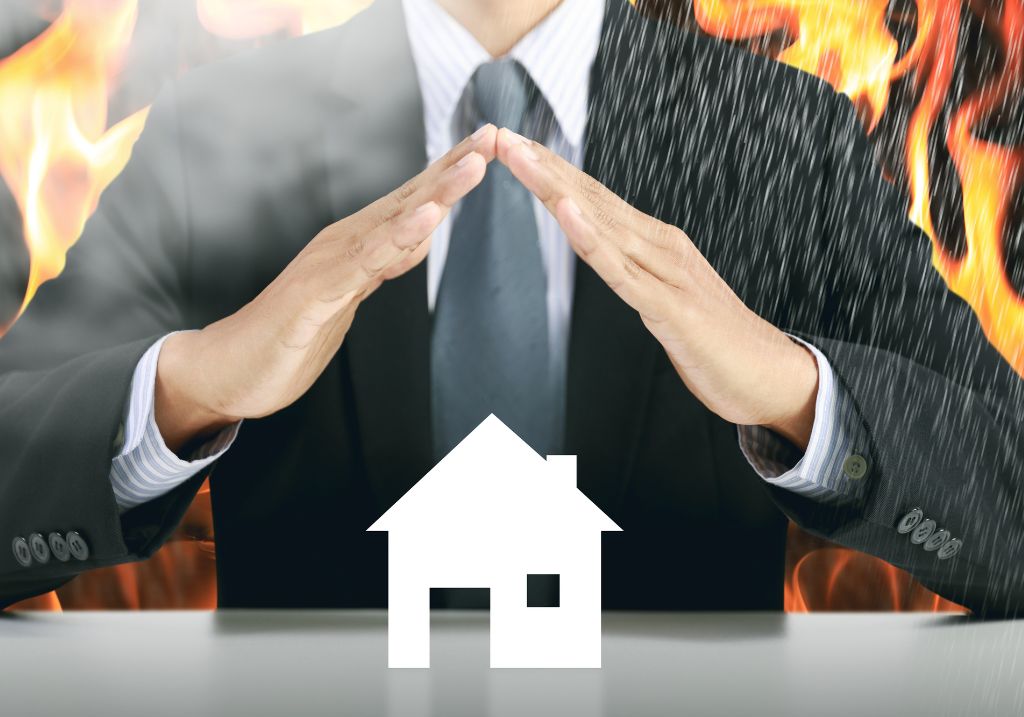10 home fire prevention techniques
Buying a house is very expensive. Most people must get a loan and pay it off for 10 years before fully owning the house. But what if your home is suddenly damaged, like if there's an electrical problem and the whole house burns down? No one wants that to happen. That's why keeping your home safe is important, especially from disasters that can harm people and property. If you're not careful even for a moment, unexpected damage can happen to your home.
The old saying "thieves do less damage than a single fire" means we shouldn't underestimate the danger of fire. Today, we will share 10 techniques to help prevent fires.
1. Keep items and appliances that could be fuel to cause a fire
Keep things that could catch fire away from your home. This includes newspapers, magazines, old clothes, and home appliances that contain flammable chemicals like cleaners, paints, and aerosols. If these flammable items are kept in places with heat or high temperatures, they could catch fire and cause an explosion. It's important to store flammable materials in a closed, cool place to prevent them from becoming fuel for a fire.
2. Regularly inspect electrical appliances, and wires, and turn off power switches
Always unplug your appliances after using them, and check the condition of the plug. Before using any electrical appliance, ensure it's in good working order. If you notice any issues, like a frayed or damaged cable, get it repaired right away.
3. Turn off the cooking gas when not in use
Fires that start in the kitchen are one of the most common causes of home fires, making up over 48% of home fire problems. This is often due to carelessness while cooking, like forgetting about something on the stove. Food residues that get stuck in the oven or microwave can also catch fire if heated for too long. That's why it's important to clean the stove and microwave regularly. Make sure to collect and dispose of any food waste or other flammable items after cooking.
4. Equipped with a power cutout to prevent short circuits
Electrical short circuits cause about 10% of home fires. While this is a relatively low percentage, these fires can be very dangerous and lead to serious injuries, deaths, and property damage. This is because short circuits often happen in homes or confined spaces, where fires can spread quickly. They also frequently occur at night when people are sleeping. Installing a power cut-off system is a good way to protect against short-circuit fires. This will automatically shut off the power if the electrical panel overloads or shows signs of a short circuit. This can help stop the fire from spreading.
5. Do not light incense, candles, worship monks, or leave cigarette butts while no one is in the house
Keep lighters, matches, and other fire-starting devices away from heat and sparks to prevent them from causing a fire. Similarly, if you smoke and don't fully extinguish your cigarette, it could still ignite and start a fire without you realizing it. You need to be very careful, as even a small mistake like this can lead to a fire breaking out.
6. Certain electrical appliances
Devices like TVs and refrigerators should be kept away from walls to allow for proper heat dissipation. This helps prevent sparks that could potentially start a fire.
7. Install a smoke detector inside the house
Regularly check your smoke detectors by pressing the test button. This will let you know if the detector is working properly.
8. Save the number near your home fire station or emergency number
Keep your fire extinguisher in a place where everyone in the house can see it. If a fire starts, people can quickly use the extinguisher to put it out.
9. Install fire extinguishers in the house
Make sure everyone in your home knows how to use the fire extinguisher properly. Also, regularly check the extinguisher to make sure it's in good working condition. Replace the extinguishing agent once it has reached the end of its useful lifespan.
10. Regularly inspect and be careful in the house
For example, when cooking in the kitchen, never leave the stove unattended. Always turn it off if you're going to be away from the kitchen. If you're burning candles or incense, keep them away from anything flammable and put them out right away when you're done. Be very careful when using electrical appliances too. If you notice any issues or problems, get them fixed right away.








